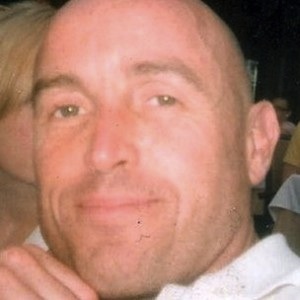
The organisation describing itself as the ‘new’ IRA said this week it had executed a major drug dealer in north Belfast amid escalating violence on the streets of the Six Counties.
The shooting of Kevin Kearney, whose body was recovered from a lake near his home in the Limestone Road area on Wednesday, is the first attack in almost a year by the group which formed last year from the union of the ‘Real IRA’ and other breakaway IRA groups.
Last November, the group claimed responsibility for an ambush attack in which Maghaberry prison warder David Black was killed.
It is understood Kearney had built a massive drugs business over several years which operated out of his north Belfast base.
‘DESIST OR SUFFER CONSEQUENCES’
In a statement on Thursday, the ‘IRA’ said the decision to kill the druglord had not been taken lightly.
The group said it had “carried out an investigation” into Kearney “in response to complaints within our community” and had issued him with a warning “that he was no longer welcome in our communities”.
It said he had been “responsible for large-scale drug dealing of class-A and B drugs” and said he was “instructed to stop immediately. Kearney refused to heed this warning and carried on with his activities and as consequence the IRA made the decision to execute”.
It also issued a warning to drug dealers that “anyone engaged in this vile activity should desist at once or suffer the consequences”.
Sinn Fein’s Gerry Kelly “condemned outright” the Belfast killing, and said the new ‘IRA’ organisation had “no support whatsoever” with the local community.
“In fact it is common knowledge that they have within their ranks people who have taken back handers from drug dealers so that they can continue peddling drugs. This makes them the same as the drug dealers who bring death and destruction to the community,” he said.
“Masquerading under the name republican does not stop people from seeing these groups for what they really are. I would call on anyone who has any information on this killing to bring it forward to the PSNI.”
The shooting dead in Derry city centre the next day of a second criminal figure, Barry McCrory, stoked fears of a possible series of killings. While the shock daylight gun attack was immediately blamed on republicans by British and local politicians, the PSNI later named a local man as being sought in connection with the murder, and said there was no connection with the Belfast killing.
ROCKET ATTACK
However, amid the confusion, a mortar rocket attack aimed at Derry’s Strand Road PSNI station did appear to be linked to the ‘new’ IRA. No group has yet claimed responsibility for the aborted attack, which led to a large evacuation of civilians in the Lawrence Hill area of Derry.
If confirmed, it would be the first such rocket attempt by the new organisation, and aimed at a very traditional IRA target. The heavily reinforced Strand Road PSNI (formerly RUC) base, one of the most frequently attacked police stations in Europe, has been a very frequent target of IRA groups throughout the conflict.
Sinn Fein in Derry described those responsible for the incident as “wreckers”.
“Whatever group was behind this incident they need to reflect on the political realities of Ireland in 2013,” said local party representative Maeve McLaughlin. “The people of Derry do not want this happening in their name.”
BOMB BARRAGE
Earlier in the week, loyalist paramilitaries caused chaos in Belfast with some five or six separate bomb alerts, including one near the offices of the Alliance Party, blamed by loyalists for a decision to reduce the flying of the British flag above City Hall.
The pipe devices were defused over 72 hours across east, west, north and south Belfast and appeared to have been planted to cause widespread disruption and forced the closure of the M1, the north’s busiest motorway. Most were described as hoaxes but two were said by the PSNI to have been viable devices.
Despite the unionist paramilitary UVF having shot and seriously wounded a 24-year-old woman in east Belfast two weeks ago, British Direct Ruler Theresa Villiers insisted this week that she still believes the UVF is maintaining a ceasefire.
The British government previously refused to accept that the 2011 UVF murder of loyalist rival Bobby Moffett or the rioting orchestrated by the organsation over the past three years has broken their professed ceasefire.
In response to queries about the status of the UVF’s ceasefire, a British officials said Villiers had been briefed by the PSNI “that while individual members of loyalist paramilitary organisations have been involved in recent acts of violence or criminality, their assessment remains that, as an organisation, there is no evidence of the any change in status of the UVF ceasefire.”
![[Irish Republican News]](https://republican-news.org/graphics/title_gifs/rn.gif)
![[Irish Republican News]](https://republican-news.org/graphics/title_gifs/harp.gif)

